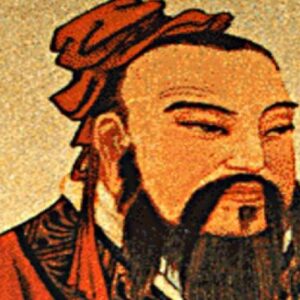Mencius, a well-known Chinese philosopher, was born in the province of Zou. After Confucius, he was controversially regarded as the most popular Confucian. Mencius’ philosophy is marked by idealism and the assertion that man’s nature is fundamentally good. Despite the fact that numerous Confucian philosophers existed, Mencius was the most intelligent and popular. He even enhanced and enlarged Confucius’ teachings. In addition, his interpretations and analyses of these ideas became as important and strong as those of Confucius.
Childhood and Adolescence of Mencius
Mencius was born in 372 BC in the state of Zou, which is now a developing region of Shandong province’s county-level city of Zoucheng.
The location is only thirty kilometers south of Qufu, which is where Confucius was born. Meng Ke or Ko was his birth name. He was a member of the Meng or Meng-sun clan, which was one of the region’s governing dynasties. There is no information on Mencius’ early life.
His father, like Confucius, most likely died while he was a child. As a result, he was raised by his mother. His mother never married again throughout her life. There are a number of intriguing but dubious anecdotes regarding his mother and Mencius’ youth.
These are also the only places where you can learn about his early years. Mencius may have attended Confucian schools, according to legend.
These schools were founded by Tzu-ssu, Confucius’ grandson. Mencius was educated as a scholar and teacher in his early years.
He also took notes from Confucian books such as the Book of Odes (Shih Ching) and the Book of Documents (Shu ching).
Career in Politics
Mencius, presumably, had a reputation as a teacher in Tsou, but his life is unknown until he arrived in Ch’i, north of Lu. At the time, the state was the most powerful in the world. He is thought to have arrived in Ch’I during the reign of King Wei.
Around 324 BC, he left Ch’i and traveled south, passing through the states of Sung and Hsüeh. The rulers of these states provided him with travel cash.
He eventually made his way back to Tsou, his home state. He was also invited to join Duke Wen of T’eng’s court as an advisor. Teng was a tiny town in Tsou.
Mencius also went to Teng, where the duke advised him on a mourning ceremony for his father, who had recently died.
On the subject of statecraft, he had numerous interactions and conversations with Duke Wen. The Duke was awestruck by Mencius’ intelligence and ability to study.
Mencius soon left Teng, ostensibly compelled to do so because he had earned the enmity of many of Duke’s counselors, who despised Mencius’ influence on the Duke.
Mencius then went to Liang, the capital of Wei, a state west of Ch’i and Sung. The elderly King Hui greeted him with open arms. With the king, he had several nice conversations and interviews.
Mencius had a tumultuous relationship with Hui’s successor, Hsiang. When Mencius became king in 319 BC, he returned to Ch’i. Mencius was offered a recognized position in the Ch’i government, although it seemed unlikely that he would be in charge of policy.
Mencius was a serious man who prioritized his values. Unlike King Hsüan, who was primarily concerned with practical issues of government, Mencius was exclusively interested in discussing theoretical issues.
When Mencius’ mother died, his servings in Ch’I were interrupted. He came to Lu and planned a lengthy funeral for her mother, which lasted three years. In 315 BC, Ch’I attacked the northeastern state of Yen.
Before leading his troops, King Hsüan sought Mencius’ guidance, but Mencius responded with a deceptive response that the king accepted.
The Yen defeated the Ch’i army in 312 BC. Mencius was requested to leave the state due to his frustration with the same and displeasure with the Ch’i’s policies. Mencius resided in Tsou for the remainder of his life.
He traveled with his devoted following and continued to study Confucian books. Mencius’ teachings are preserved in a text titled Meng-tzu.
He is also thought to have been a disciple of Confucius’ grandson, Zisi, and to have traveled around China for almost forty years, imparting reform advice to successive kings.
During the Warring States Period, from 319 to 312 BC, he was also an official and scholar at the Jixia Academy in the State of Qi. He was dissatisfied since his remarks had no impact on the modern world, and he withdrew from social life.
His Death Date
Mencius died in around 289 BC and was interred in the town of Zhou, south of the town of Qufu in Shandong, China.
Estimated Net worth
Undisclosed


